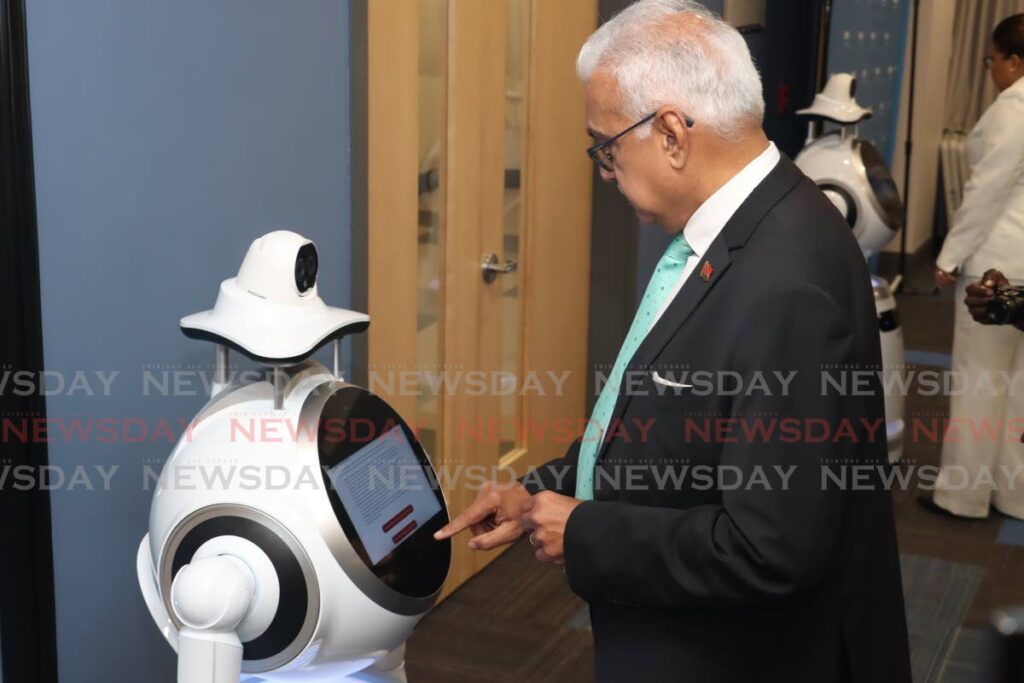NCRHA promises AI-centred healthcare revolution

HEALTHCARE in Trinidad and Tobago is said to be on the brink of transformation as generative artificial intelligence's (AI) influence on practically every industry continues to grow.
While local and regional healthcare sectors have yet to capitalise fully on AI's potential, the North Central Regional Health Authority (NCRHA) says it is positioning itself to lead the charge in AI integration, promising to reshape how health services are delivered in TT and the Caribbean.
Addressing an audience of doctors, surgeons, policymakers and researchers at its inaugural AI in Healthcare conference, NCRHA CEO Davlin Thomas outlined the authority’s vision to revolutionise patient care, diagnostics and treatment through AI integration.
“The introduction of AI technology to support this ecosystem presents us with an intriguing dynamic – one that promises to enhance the patient’s experience, increase our efficiency to meet growing demand, boost our capacity in administrative, technical and clinical processes, and optimise support systems for staff, patients and stakeholders,” Thomas said.
The conference, held on November 26 at the Hilton Trinidad and Conference Centre, was themed Catalysing Change: Exploring the Transformative Impact of Artificial Intelligence on Patient Care. As the first such event hosted by a regional health authority, the conference aimed to kickstart the NCRHA’s leadership in AI-powered healthcare.
“Indeed, the future of healthcare looks bright and we are excited about the role AI is going to play. It is inevitable,” Thomas said, expressing confidence in AI’s transformative potential.
He said the NCRHA was committed to a “systems approach” to healthcare innovation, saying AI would enhance preventative care, optimise administrative processes and create a seamless experience for patients and staff.
“We are mindful, not only of the metaphorical stone that we throw into the water, but we’re also cognisant of where the waves go and where the ripples resonate,” he added.
The conference featured a powerful lineup of speakers, tasked with presenting on AI’s potential to transform the industry.
Prof Wayne Frederick, TT-born, US-based surgeon and the 17th president of Howard University, explored AI’s role in advancing health equity and improving outcomes for underserved populations. Frederick also discussed AI’s integration into medical education and clinical practice. He stressed the need for updated medical and nursing curricula to include computer science and AI to prepare healthcare professionals for modern challenges.
Frederick highlighted the transformative potential of generative AI in tailoring treatments to individual patient needs, contrasting this with traditional AI’s more limited applications.
He also raised concerns about the need for robust regulatory frameworks to manage the rapid development of AI technologies and prevent potential disparities in care for underserved populations.
Dr Ronnie Sebro, a radiologist at the Mayo Clinic in Minnesota, discussed AI's use in diagnostics and treatment, particularly for conditions such as osteoporosis and musculoskeletal disorders. Dr Tra'Chella Johnson-Foy delivered a presentation on AI’s applications in chronic-disease management.
Dr Navi Muradali addressed the development of AI tools tailored to the needs of regional healthcare systems, and Leslie Lee Fook, director and co-founder of INCUS Services, examined how analytics could enhance decision-making and operational efficiency in healthcare from a data-driven perspective.
Thomas also spoke about the NCRHA’s ongoing efforts to integrate AI into its preventative care initiatives, noting that the authority has carried out large-scale health screenings and wellness programmes, with over 3,000 participants. He said by further leveraging AI, such efforts could be scaled to reach more patients, improve early detection of illnesses and deliver more effective interventions.
“We look forward to the inevitable, transformative impact AI will have on the healthcare sector,” Thomas said, expressing confidence in the NCRHA’s ability to lead this change.

Comments
"NCRHA promises AI-centred healthcare revolution"